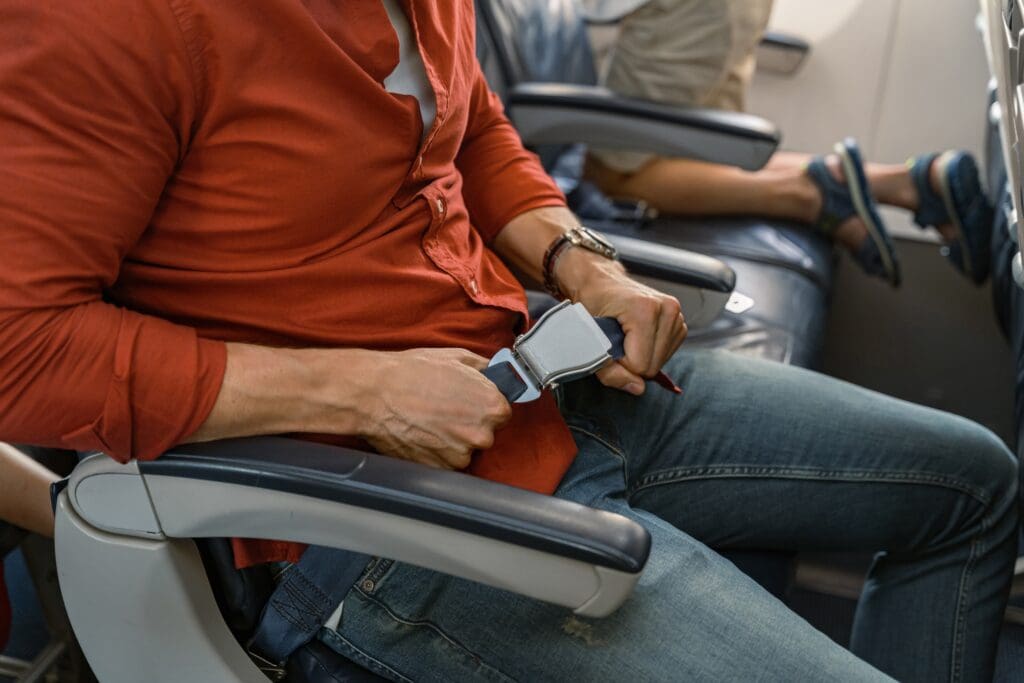Airlines will soon amend their safety briefings to urge passengers to wear seatbelts at all times, following a tragic incident on a Singapore Airlines flight that resulted in the death of a British pensioner.
Safety teams across numerous airlines are reviewing measures to ensure passengers remain belted even when the seatbelt sign is off. Captains at many major carriers are already stressing the importance of seatbelt use during pre-departure announcements, and seatbelt signs are being activated more quickly, even in mild turbulence.
Recent changes to safety briefings have highlighted the risks posed by lithium-ion batteries in mobile phones and battery packs. Passengers are now instructed to inform the crew immediately if their phone becomes trapped in their seat, to avoid damaging the battery and potentially causing a fire.
Airline executives are increasingly concerned about incidents caused by turbulence. Twenty-one global airlines have joined the International Air Transport Association’s (IATA) “Turbulence Aware” programme, which provides advance warnings to cockpits and flight planners. This topic is set to be a key agenda item at IATA’s annual conference in Dubai this week.
Sir Tim Clark, President of Emirates, acknowledged the industry’s heightened focus on passenger safety: “We’ve had our own fair share of issues. Not as bad as Singapore Airlines, but let’s be quite honest, it’s a real race and the whole industry is now upping the game with regard to making sure that passengers are strapped in. We are looking at all the protocols.”
Last month, Singapore Airlines Flight 321 experienced severe turbulence, dropping 178 feet in less than five seconds. The incident resulted in a violent seesaw motion, leading to the death of Geoffrey Kitchen, a 73-year-old musical theatre director from outside Bristol, and hospitalising over 100 passengers.
Bradley Richards, a British telecoms engineer from Benfleet, Essex, who was knocked unconscious during the same flight, is receiving treatment for six spine and neck fractures. He described the experience as “frantic” and “like something out of a movie.”
Sources indicate that this issue is of “extreme concern” to airlines, prompting immediate changes. One senior aviation source stated, “Airline bosses are terrified by the Singapore event. They know they could be next and it worries them. There’s a concerted effort in the industry now to adapt, and [safety] briefings are going to be at the heart of it. The messaging is going to be massively strengthened: it’ll be ‘Stay strapped in at all times’. End off.”
IATA has launched a new platform where airline captains can report areas of turbulence to assist flight planners. Additionally, airlines are increasingly employing AI to predict turbulent areas more accurately.
Paul Charles, CEO of The PC Agency consultancy, commented, “Many airlines are moving quickly to try and reassure flyers. This is the most significant change to onboard safety advice for at least two decades, and travellers should now always plan to buckle up.”


